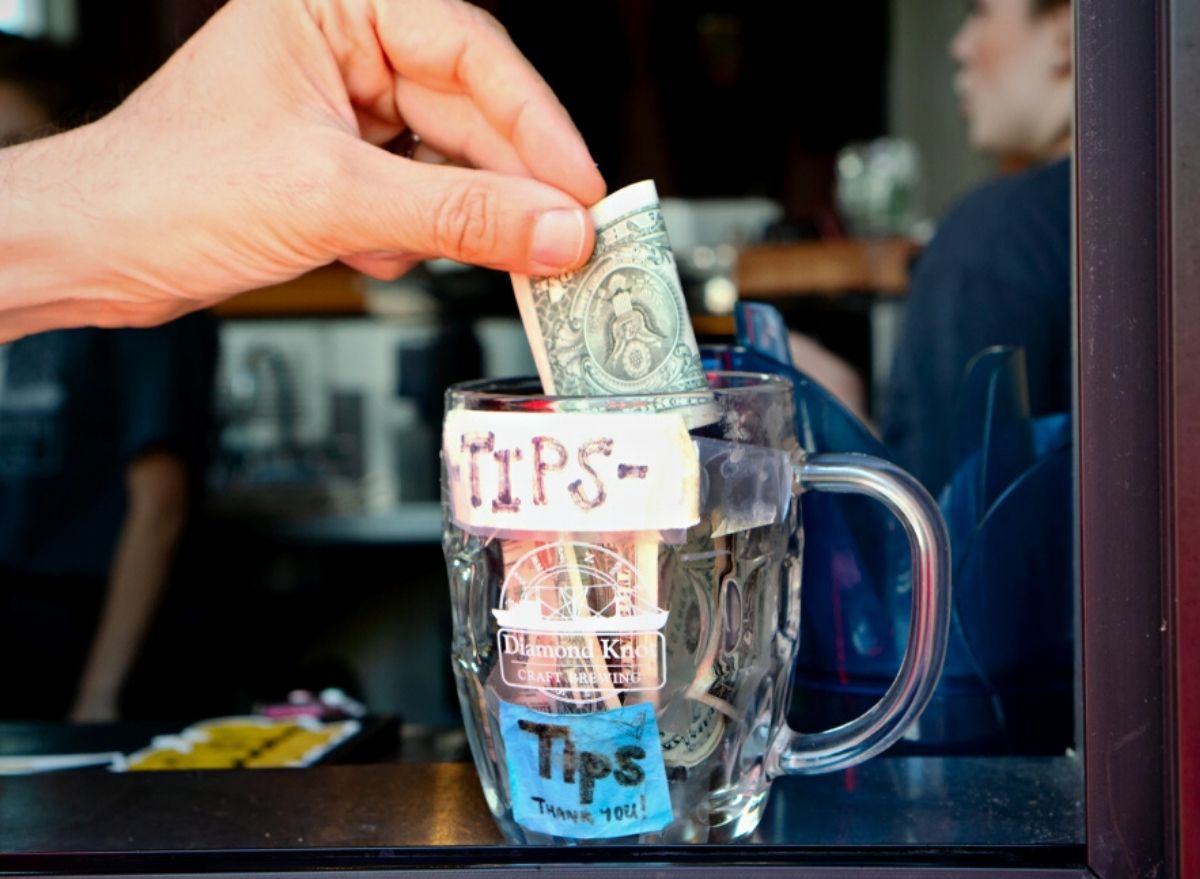Tipping is often seen as an extra bonus for good service and, in America, 15-20% is standard at any full-service restaurant. However, if you’re not sitting down at a restaurant then it’s difficult—and even awkward in some circumstances—to know whether or not to leave a tip. After all, picking up a large pizza order at a counter that you ordered from a kiosk or a cheeseburger meal at a fast-food drive-thru that you ordered via an app doesn’t leave a lot of room for personalized service. When that tip notification pops up on the tablet you’re handed, should you tip, and, if so, how much?
With the state of the economy and workers who may or may not be receiving livable wages, times have changed. Many fast-food chains today leave out tip jars or have implemented digital tip options at the register. However, per a recent survey, 61% of American diners say they don’t tip at all, in terms of fast-food and non-table service establishments.
In order to straighten out the debate of tipping, we spoke to financial and money experts in order to best guide you the next time you find yourself wondering “to tip or not to tip” at a fast food chain.
How Tipping Has Changed
Today, there are coffee shops, bakeries, sandwich chains, and even pizza joints making the switch towards using digital registers or tablets at checkout—this new tipping technology prompts customers to tip 10%, 15%, 20%, or even 22% on top of their payment.
For the longest time, the 20% tipping theory has sufficed within the food industry and has been somewhat of an unspoken standard. In our current economic climate, it’s not always in everyone’s best interest to be spending their own income by constantly tipping or overtipping where it’s not a necessity.
We’re in a time of inflation and other money challenges, where most Americans aren’t financially safe—on that note, Financial Advisor and CEO of Benny, Andy Kalmon says, “if possible, try to tip a little bit at [fast-food] places that didn’t use to ask for tips, for the workers’ sakes, but it’s okay to stay in the 10-15% range instead of 20-25%.”
The federal minimum wage is currently $7.25 per hour. While states are allowed to increase the minimum to anything over the federal standard—for reference, the U.S. ranges from $13 in California to $8.75 in Montana. Therefore, it’s important to understand that the employees of most fast-food restaurants don’t expect a large number of tips to make their living.
“You can usually skip tipping at fast-food chains, self-service establishments, and places where the staff does not provide personalized service,” Sophia Jones, a financial analyst at Piggybank says, “these workers often receive a full hourly wage without relying on tips.”
While it’s not a requirement to tip at fast-food restaurants, there are circumstances where it’s not only reasonable but it’s well-deserved. Here are six fast-food chains where you should be tipping and how much.
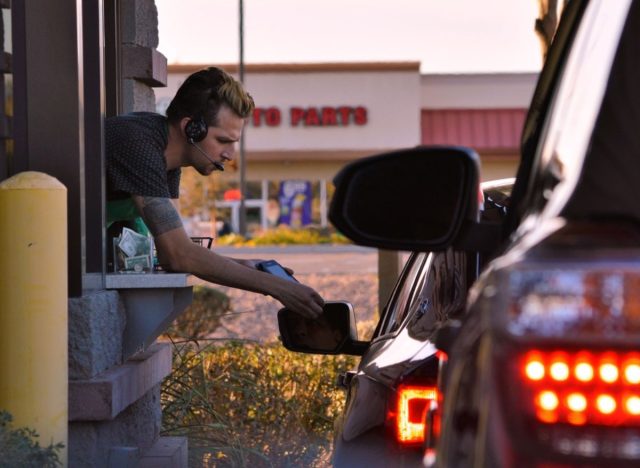
Customers were not prepared for Starbucks’ new digital tipping system and they pushed back against the interactions it forces. But for Starbucks, and any coffee shop that is making custom-to-order drinks, a tip is often warranted.
“For baristas and bartenders, $1 per coffee [or] $1 or $2 per drink is a decent tip,” according to Bill Ryze, a certified chartered financial consultant and board advisor at Fiona. Keep in mind, Starbucks baristas aren’t handing you something pre-made right out of the fridge or microwave oven—these employees handcraft coffee beverages, make uncommon customizations where need be, and tend to make friendly conversation or educated recommendations (even when it’s not required!).
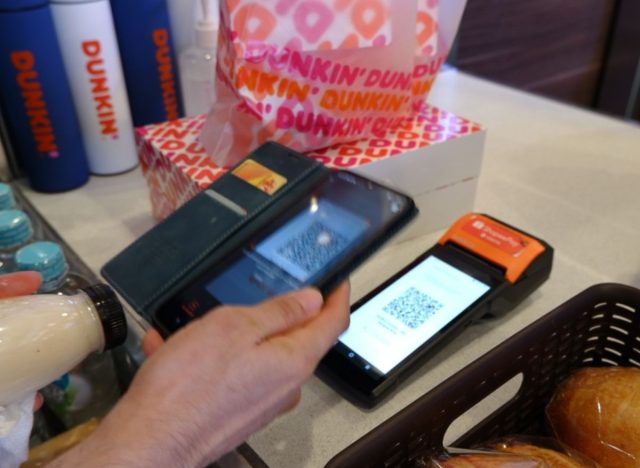
Like Starbucks, taking a trip to your local Dunkin’ and quickly picking up your caffeinated drink—whether that be in the drive-thru or inside the store—you will usually be prompted with a tipping request at the end of your final purchases.
“If you must tip, a small amount, such as 10-15% of the total bill, is appropriate,” recommends Michael Hammelburger, a CPA and CEO of The Bottom Line Group. If you think that the staff who helped you did such a wonderful job, 10-15% of an 8-$10 coffee order only comes out to a 1-$2 tip. This gives you the chance to give back to hard-working baristas—but it’s not necessary if there wasn’t anything exceptional about your experience.
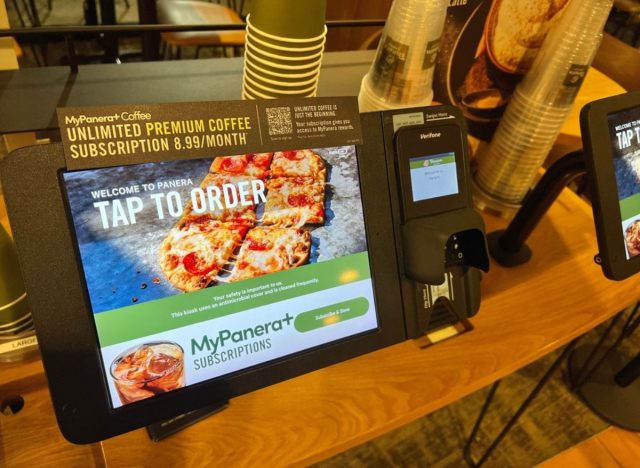
From bakery items and coffee to snacks and full hot meals, Panera serves a variety of food to customer via counter service, kiosks, or its app. The fast-casual bakery chain is one of the more complicated on the list, due to the fact that customers have a variety of ways to order and the option of dining in or taking their order to-go. So, the question is more dependent on what your chosen experience entails.
If you decide to sit in at a Panera, “you cannot go wrong with 20%, and if they gave exceptional service anything more is greatly appreciated,” says Financial Analyst, Neil Gallagher. “When it comes to in-and-out stores such as bakeries, a dollar or two is more than fine.”
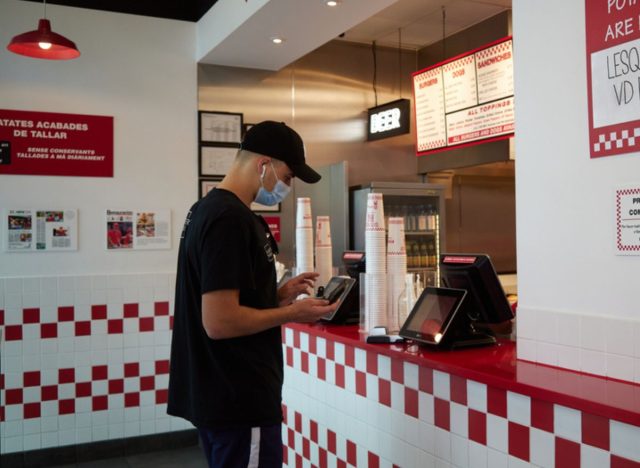
Five Guys is a relatively expensive burger chain, in comparison to a lot of other fast-food places, specializing in custom-built burgers. You could rack up quite a bill with just a few menu items, but, unlike McDonald’s and Burger King, everything is made fresh to order (burgers, fries, milkshakes, and all).
Experts agree that at a fast-food joint like Five Guys, no tip is needed if you don’t receive any person-to-person contact. However, some employees have been known to go above and beyond, “such as expediting an order or accommodating a special request, [and] it is appropriate to leave a small tip of 5-10%. While the staff does not provide full service, they still work hard to ensure that your order is prepared to your liking and is ready when you arrive,” explains Kimberly Shaw a financial expert.
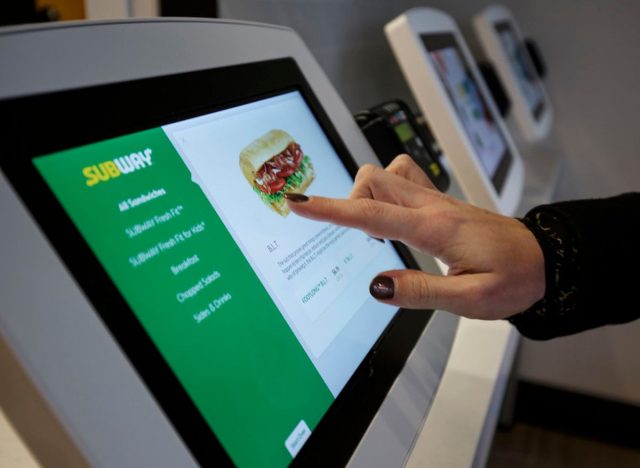
At Subway, customers walk in to watch and direct sandwich makers put together exactly what they want and how they want it. That’s a unique service and a few dollars would be nice as a thank you for good service. When a customer is not directly served, such as with Subway’s new Kiosk operations and mobile ordering, then things get more complicated.
Some say the new digital ordering and payment systems create a transactional experience. If it’s just a transaction then no extra service has been provided, according to Mark Stewart, a certified public accountant. “However, if the person goes out of their way to offer you an exceptional experience, I would certainly tip at least $5,” he goes on to say, “When someone’s working hard and exceeding your expectations, I think they deserve to be rewarded for their efforts.”
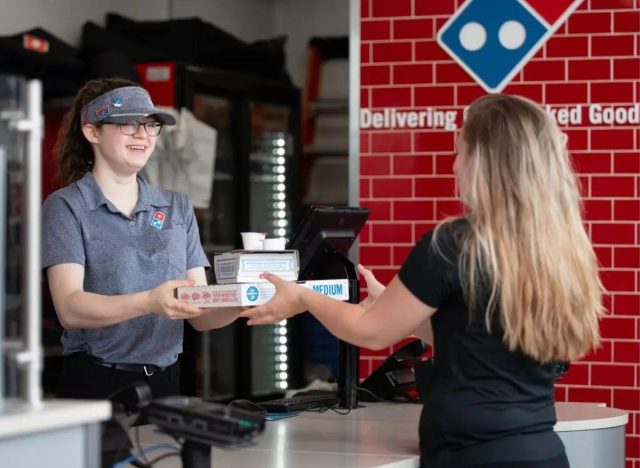
Domino’s has actually offered to tip customers to pick up their own orders—in midst of worker and delivery driver shortages. But typically the company also allows you to tip workers. For most, grabbing your pizza and heading home doesn’t offer up the opportunity or desire to leave a tip. However, if you’re ordering delivery or another service from Domino’s a tip could be warranted.
“[If] someone took your order and brought it out to your car, then it’s appropriate to include a 10-15% tip along with the payment for your order,” says Donny Gamble, CEO of Retirement Investments. “For delivery orders, you should usually tip the driver 15-20% of the total cost.”
Final Consensus
Overall, reward good service but pay what you can and never more than you can afford financially, say experts. “When in doubt, leave a tip at any place where you receive table service, and aim for 15-20% of the total bill. And when you’re picking up a quick bite to go, you can hold onto your cash and save it for your next big meal,” states Certified Financial Advisor and money expert Jenna Lofton.
